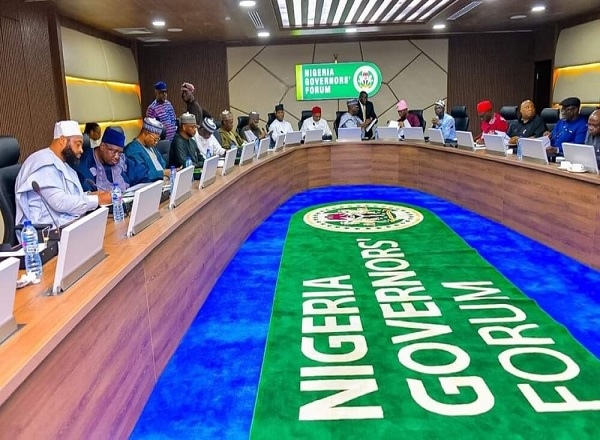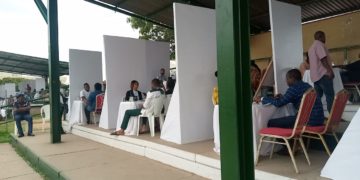The harsh economic conditions Nigerians are going through since the fuel subsidy removal have not abated despite the N180 billion the federal government gave to states for distribution as palliatives to indigent persons across the country.
The federal government had on August 17, 2023 announced a N5 billion palliative to each of the 36 states of the federation and the Federal Capital Territory (FCT).
52 per cent of the money was given to states as grants, while 48 per cent of the N5 billion is to be paid back on an instalment basis within 20 months to the Central Bank of Nigeria (CBN) by the states and the local government areas.
The N5 billion palliative was to cushion the effect of fuel subsidy removal on the people.
However, three months later, as the various state governments struggle to defend the distribution of the money, people have complained about how the intervention measures were mishandled.
For instance, residents of Imo State have lamented the uncoordinated and non-transparent distribution of palliatives in the state. The less privileged in state want the Governor Hope Uzodinma government to copy from other states that have done well in the distribution of palliatives.
Beneficiaries in the wards and council areas of the state said they were given a paint-rubber measure of rice, which is not enough for a family of four.
The palliatives, rather than cushion the effect of the subsidy removal on the citizenry, seem to have further agitated the poverty-stricken masses.
At a community in Owerri South Council area of the state where the distribution took place, a 70-year-old retired teacher, Oluoma Ndukwe, said, “I was really shocked that we were given only a paint of rice, which is not even up to 20 cups after wasting several hours in the queue.
“When I was coming here this morning, I was hoping that I would go home with one big bag of rice and an envelope.
“In fact, before coming, I had asked one of my grandchildren staying with me to come to the town hall with a wheelbarrow to convey the rice home, with the hope that they will give us one bag of rice.
“So, my question now is, why is it that our political leaders are always insensitive to the plights of its citizenry,” he asked.
Another resident of the area, Rose Odunze called on Governor Uzodimma to immediately set up a monitoring committee that will go round the local government areas of the state to ascertain if the distribution was transparent.
Similarly, the commissioner for information and strategy, Hon. Declan Emelumba, expressed astonishment with the small quantity of rice shared to the people and promised that the state government would look into the distribution methodology.
In Akwa Ibom, the distribution of palliative has since been stopped after the initial package of 40 bags per village were shared across the 2,272 villages spread across the 31 LGAs, sparking protests, LEADERSHIP checks revealed yesterday.
In Rivers State, most residents, especially those living in the rural areas, got little or nothing from the palliatives.
Speaking with LEADERSHIP, a resident of Emago community in Abua/Odual local government area of the state, Ennator James, said only one bag of rice was sent to the community of over 700 people.
“For it to go round, no matter how small, we shared one cup per person,” he said.
In Cross River, most beneficiaries complained about the small quantity of rice given to them, saying it was nothing to write home about, considering the level of hunger in the land.
In Niger, the state government set up an all-inclusive committee from the ward to the state level to distribute palliatives worth N5.23 billion to vulnerable households.
But some of the residents confirmed receiving only some measures (Mudu) of rice, a few sachets of Indomie and Spaghetti which could not do much to cushion the hunger induced by fuel subsidy removal.
In Borno State, the story more positive. The distribution of the palliatives began in July, targeting about 400,000 households across the state, with priority on communities most affected by insurgency.
The chairman, Joint National Association of Persons with Disability (JONAPWD), Ahmadu Umar, said some of his members were beneficiaries of the gesture.
“Apart from this, about 2,000 of our members are receiving monthly stipend of N15,000 from the state government,” Umar said.
For its part, the Delta state executive council approved the sum of N10 billion as social investment to fund palliatives for Deltans.
It was for the provision of palliatives for the less privileged, people living with disabilities, widows, women, orphans and vulnerable children, youths, the aged, civil servants and reduced transportation costs in the society.
The state also approved 25 percent reduction in acceptance fees for new students at the state-owned universities: Delta State University, Abraka; Delta State University of Science and Technology, Ozoro; University of Delta, Agbor, and the Dennis Osadebay University, Anwai-Asaba.
The governor had earlier paid N10,000 to over 50,196 workers since August 2023 for three months in addition to the ayment of N5.522bn to civil servants across the state as promotion arrears.
In Benue State, the state government said it will commence the rollout of palliatives between first and second week of December.
It pleaded with the residents to be patient while it takes stock of the situation.
For its part, the Ekiti State government has said that the palliatives rolled out to cushion the effects of fuel subsidy removal went to all vulnerable persons in the state.
The commissioner for information, Taiwo Olatubosun said 3,000 bags of rice were received by the state in the first tranche of the palliatives while 10,000 bags of rice and grains had been distributed to vulnerable citizens, among them civil servants, artisans, faith-based and various groups in all the 177 wards and 16 local government areas of the state.
Other packages by the government include free bus shuttle for civil servants and students, free and compulsory education for primary school pupils, free malaria treatment for children aged 1-5 years, and 65 years and above, payment of leave bonus, pension arrears, gratuity, and promotion backed with cash, among others.
N275bn Loans for MSMEs Yet To Commence
Meanwhile, the N275 billion loan facilities promised the manufacturing and MSMEs sectors are yet to commence.
President Bola Tinubu had in August approved the release of over N275 billion for the immediate resuscitation of the manufacturing sector and the Micro, Small and Medium-sized enterprises (MSMEs).
He said the move was to strengthen the manufacturing sector, increase its capacity to expand and create good paying jobs.
He added that the federal government would spend N75 billion between July 2023 and March 2024.
The objective, he said, was to fund 75 enterprises with great potential to kick-start sustainable economic growth, accelerate structural transformation and improve productivity.
Each of the 75 manufacturing enterprises will be able to access N1 billion credit at 9 per cent per annum with maximum of 60 months repayment for long term loans and 12 months for working capital.
However, a source in the government informed our reporter last night that the Small and Medium Enterprises Development Agency of Nigeria (SMEDAN) was still in the process of collecting the data of qualified enterprises.





